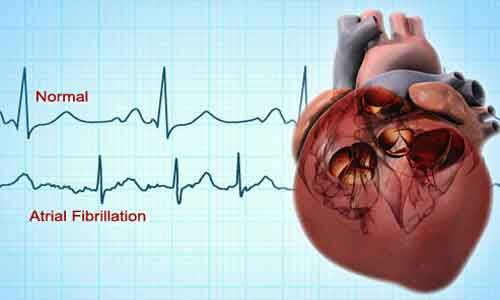- Home
- Medical news & Guidelines
- Anesthesiology
- Cardiology and CTVS
- Critical Care
- Dentistry
- Dermatology
- Diabetes and Endocrinology
- ENT
- Gastroenterology
- Medicine
- Nephrology
- Neurology
- Obstretics-Gynaecology
- Oncology
- Ophthalmology
- Orthopaedics
- Pediatrics-Neonatology
- Psychiatry
- Pulmonology
- Radiology
- Surgery
- Urology
- Laboratory Medicine
- Diet
- Nursing
- Paramedical
- Physiotherapy
- Health news
- Fact Check
- Bone Health Fact Check
- Brain Health Fact Check
- Cancer Related Fact Check
- Child Care Fact Check
- Dental and oral health fact check
- Diabetes and metabolic health fact check
- Diet and Nutrition Fact Check
- Eye and ENT Care Fact Check
- Fitness fact check
- Gut health fact check
- Heart health fact check
- Kidney health fact check
- Medical education fact check
- Men's health fact check
- Respiratory fact check
- Skin and hair care fact check
- Vaccine and Immunization fact check
- Women's health fact check
- AYUSH
- State News
- Andaman and Nicobar Islands
- Andhra Pradesh
- Arunachal Pradesh
- Assam
- Bihar
- Chandigarh
- Chattisgarh
- Dadra and Nagar Haveli
- Daman and Diu
- Delhi
- Goa
- Gujarat
- Haryana
- Himachal Pradesh
- Jammu & Kashmir
- Jharkhand
- Karnataka
- Kerala
- Ladakh
- Lakshadweep
- Madhya Pradesh
- Maharashtra
- Manipur
- Meghalaya
- Mizoram
- Nagaland
- Odisha
- Puducherry
- Punjab
- Rajasthan
- Sikkim
- Tamil Nadu
- Telangana
- Tripura
- Uttar Pradesh
- Uttrakhand
- West Bengal
- Medical Education
- Industry
Early rhythm control therapy improves prognosis of AF patients: ESC

Sophia Antipolis, France - Patients with newly diagnosed atrial fibrillation benefit from early rhythm control therapy, according to results of the EAST-AFNET 4 trial presented in a Hot Line session today at ESC Congress 2020.
Rhythm control therapy is typically delayed unless patients have persistent symptoms on otherwise effective rate control. The EAST-AFNET 4 trial investigated whether rhythm control therapy – with antiarrhythmic drugs or ablation – delivered soon after diagnosis improves outcomes.
"The risk of severe cardiovascular complications and death in patients with atrial fibrillation is highest in the first year after diagnosis, suggesting that early therapy could be most beneficial," said principal investigator Professor Paulus Kirchhof of the University Heart and Vascular Centre UKE Hamburg, Germany and University of Birmingham, UK. "Furthermore, atrial fibrillation causes atrial damage within a few weeks of disease onset. Early rhythm control therapy could reduce or prevent this damage, making it more effective."
A total of 2,789 patients in the first year of atrial fibrillation diagnosis and with at least two cardiovascular conditions were enrolled from 135 sites in 11 countries during 2011 to 2016. Patients were randomised 1:1 to early rhythm control therapy or usual care, stratified by sites. Patients in both groups received treatment for cardiovascular conditions, anticoagulation, and rate control according to guidelines.
Patients in the early rhythm control group received antiarrhythmic drugs or catheter ablation (chosen by the local study teams). Rhythm control therapy was escalated when recurrent atrial fibrillation was documented clinically or by ECG, including monitoring with patient-operated ECG devices.
Patients in the usual care group were initially managed with rate control. Rhythm control therapy was only used to mitigate severe atrial fibrillation-related symptoms despite optimal rate control, following current guidelines.
The first primary outcome was a composite of cardiovascular death, stroke, worsening heart failure, and acute coronary syndrome. The second primary outcome was nights spent in hospital per year. The primary safety outcome was a composite of stroke, all-cause death, and serious adverse events caused by rhythm control therapy.
During a median follow-up of 5.1 years, the first primary outcome occurred in 249 patients on early therapy and in 316 patients receiving usual care. Adjusting for the group-sequential design of the trial, it occurred less often in patients on early rhythm control (hazard ratio [HR] 0.79; confidence interval [CI] 0.67–0.94; p=0.005). The absolute risk reduction with early rhythm control was 1.1% per year.
The clinical benefit of early rhythm control was consistent across subgroups, including asymptomatic patients and patients without heart failure. All components of the primary outcome occurred numerically less often in patients randomised to early therapy, and cardiovascular death and stroke were significantly reduced compared to usual care.
Regarding the second primary outcome, there was no difference in nights spent in hospital between groups (early therapy 5.8±21.9 days/year; usual care 5.1±15.5 days/year; p=0.226).
The primary safety outcome did not differ between groups (early therapy 231 events; usual care 223 events). Complications of rhythm control therapy were more common in patients on early therapy, but occurred infrequently, in line with other recent rhythm control trials.
Professor Kirchhof said: "Rhythm control therapy initiated soon after diagnosis of atrial fibrillation reduces cardiovascular complications without increasing time spent in hospital and without safety concerns. These results have the potential to completely change clinical practice towards rhythm control therapy early after the diagnosis of atrial fibrillation."
Hina Zahid Joined Medical Dialogue in 2017 with a passion to work as a Reporter. She coordinates with various national and international journals and association and covers all the stories related to Medical guidelines, Medical Journals, rare medical surgeries as well as all the updates in the medical field. Email: editorial@medicaldialogues.in. Contact no. 011-43720751
Dr Kamal Kant Kohli-MBBS, DTCD- a chest specialist with more than 30 years of practice and a flair for writing clinical articles, Dr Kamal Kant Kohli joined Medical Dialogues as a Chief Editor of Medical News. Besides writing articles, as an editor, he proofreads and verifies all the medical content published on Medical Dialogues including those coming from journals, studies,medical conferences,guidelines etc. Email: drkohli@medicaldialogues.in. Contact no. 011-43720751


